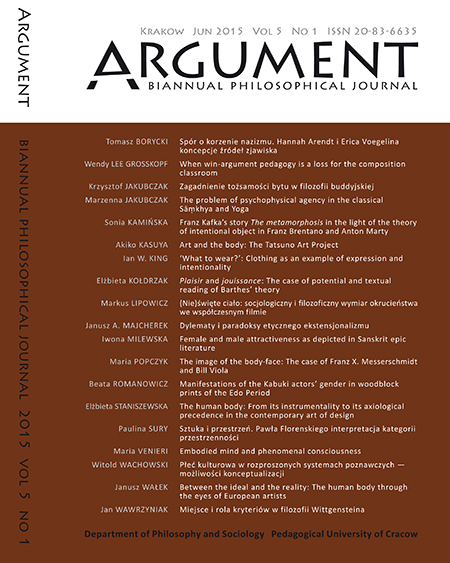Franz Kafka’s story: The metamorphosis in the light of the theory of intentional object in Franz Brentano and Anton Marty
Keywords:
intentionality, theory of emotion, correct emotion, philosophy of mind, philosophy of language, school of Brentano, intersection between literature and philosophy, body, soulAbstract
How does it feel to be a worm? No doubt, it feels Kafkaesque. The metamorphosis (1915) is a story of an ordinary man, Gregor Samsa, who wakes up one morning as an ungeheures Ungeziefer or ‘giant vermin’. Is this only a bodily change, or has his mind been transformed as well? And how do the people around him cope with this transformation? In this paper, I am going to examine these issues by using tools from Franz Brentano’s (1838-1917) and Anton Marty’s (1847-1914) philosophy of mind and language. Rumour has it that Kafka’s stories were not only products of his own troubled soul, but were also profoundly influenced by the work of these two philosophers. In my paper, I will cover the following issues: the influence of Franz Brentano on Anton Marty and a fortiori on Franz Kafka (1883-1924), who was Marty’s student in Prague (and in this way, saying something about the School of Brentano); Brentano’s and Marty’s theory of correct and incorrect emotions, and its traces in Kafka’s The metamorphosis; Marty’s philosophy of language and communication as reflected in Kafka’s writings; and Brentano’s reism in comparison to Kafka’s nominalism, on the basis of Roberto Calasso’s interpretation of Kafka.


